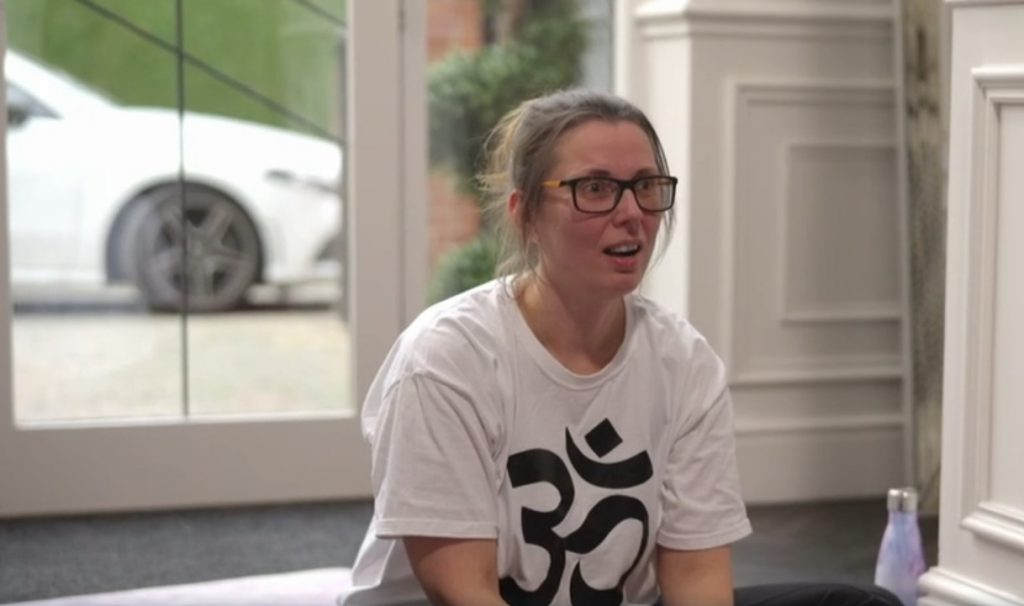Change

I think as human beings we love to create our safety bubble and stay safe there. But life is not like that. Life challenges us and tries to show us the life outside the bubble.
Change is an inherent part of life. It’s a constant force that shapes our experiences, challenges our perceptions, and moves us forward. Whether we like it or not, change is always on the horizon, and learning how to cope with it is an essential life skill. Look outside, nature changes every day. Even our bodies change every second and every seven years all our cells are completely renewed, a testament to the ever-evolving nature of existence. Change is the driving force behind personal growth and evolution. It can be both exciting and daunting, often simultaneously. The way we approach and handle change can determine our overall well-being and success in life. Here’s a roadmap to help you not only cope with change but also embrace it:
1. Breaking Big Change into Small Steps
The prospect of a significant life change, such as moving to a new city or starting a new job, can be overwhelming. To make it more manageable, break it down into smaller, more digestible steps. Think of these steps as building blocks towards the bigger change. For instance, if you’re moving to a new city, start by researching the area, then find housing, and finally plan the move itself. By focusing on one step at a time, you’ll reduce anxiety and build confidence.
2. Breaking the Patterns of Habits
Habits are powerful forces that can resist change. To embrace change, you might need to break some of your established routines. This doesn’t mean discarding all your habits; it’s about identifying which ones no longer serve you or align with your new goals. Once you’ve identified them, replace them with new, positive habits that support your desired changes. This might require patience and persistence, but it’s essential for growth.
3. Start with Small Changes
Sometimes, the fear of change itself can be paralyzing. To overcome this, start with small, manageable changes. These can be as simple as altering your daily routine or trying out a new restaurant instead of your usual one. Gradually, as you become more comfortable with small changes, you’ll build the confidence to tackle more significant transitions.
4. Accept the Change
Acceptance is a crucial step in coping with change. Recognize that change is a natural part of life and that resisting it can lead to unnecessary stress and unhappiness. Instead of fighting change, practice embracing it. This doesn’t mean you have to love every change that comes your way, but it does mean acknowledging its presence and being open to its potential benefits.
When you allow yourself to change, miracles can happen. You’ll discover new interests, meet new people, and experience personal growth. Change can lead to unexpected opportunities and open doors you never knew existed. By embracing change, you give yourself the chance to explore uncharted territories and find hidden strengths within yourself.
Change is inevitable, and learning to cope with it is a lifelong journey. So, as you move forward in life, remember that change is not the enemy; it’s the catalyst for a brighter, more fulfilling future.
Posted in Newsletter and tagged #yoga, anna smithers, Crewe Yoga, nantwich yoga, online meditation, orange lotus yoga, yoga Cheshire, Yoga Crewe, yoga nantwich by Anna Smithers with comments disabled.
The Real Housewives of Cheshire Yoga

 Because why not?! My face says it all…
Because why not?! My face says it all…And remember you don’t have to be rich to join my yoga classes, just saying

https://orangelotusyoga.co.uk/classes/
Posted in Newsletter and tagged #yoga, anna smithers, Crewe Yoga, orange lotus yoga, yoga Cheshire, Yoga Crewe by Anna Smithers with comments disabled.
Allowing others to walk their path

Our beautiful world is a diverse place, and every individual’s experiences are shaped by unique events and circumstances. What moves one person deeply might only annoy or confuse another. That’s why we all have our own paths to follow, each leading to our personal growth and evolution, with its own triggers and own moments of transformation.
Last month I had an argument with my mum. I wasn’t happy about the decision she made and I thought it was hurtful to some people. I meditated on it for a while and realised that who am I to question her decisions? She raised me on her own for the first few years, she made me who I am and now I’m telling her what to do with her life. She’s an adult, she has her own lessons to learn and walk her own path, and why on earth would I interrupt this process?
If you ever see someone struggling along a tough path, it’s natural to want to help. But it’s important to remember that they need space to find their own way. Of course, if they ask for your help, welcome them with open arms. You can share your own experiences or offer advice with love and understanding. But if they don’t ask, respect their autonomy and let them learn from their mistakes, celebrate their successes and failures, and help them to uncover their own truths.
Sometimes, our own egos or desires for control can push us to try to steer others towards our own path. But that’s not fair to them. Everyone has the right to explore their own path to enlightenment. By supporting and celebrating each other’s individual journeys, we not only witness their growth, but also reinforce the value of diversity and independence.
Letting partners be who they are:
In a relationship, it is easy to fall into the trap of trying to change your partner to fit your ideal image of them. However, it is important to remember that your partner is their own person with their own set of values, beliefs, and goals. Trying to force them to conform to your expectations can lead to feelings of resentment and a breakdown in the relationship.
Instead, it is important to accept your partner for who they are and support them in their individual goals and aspirations. This means letting them pursue their interests. It also means giving them the freedom to make their own decisions and trusting that they will make the right choices. Because at the end of the day, that’s who you fell in love with, not your expectation.
Posted in Newsletter and tagged anna smithers, Crewe Yoga, nantwich yoga, orange lotus yoga, yoga Cheshire, Yoga Crewe, yoga nantwich by Anna Smithers with comments disabled.
Creating a simple life

Through the busy mind, we create busy lives, chasing our tails.
So how can we simplify our lives?
Simplifying your life doesn’t have to be boring! In fact, it can be incredibly exciting to strip away the excess and focus on what really matters. Imagine feeling lighter and freer, with more time and energy to pursue your passions and spend time with loved ones. Simplifying your life can lead to a sense of clarity and purpose that is truly exhilarating.
Picture waking up each morning to a calm and organized space, with a clear routine that sets you up for a productive and enjoyable day. You can enjoy delicious and healthy meals that were prepared in advance, without the stress of deciding what to eat every day. By simplifying your time and responsibilities, you can free up mental space to focus on self-care and personal growth.
De-cluttering your mind can be just as liberating as de-cluttering your physical space. You can learn to let go of worries and negative thoughts and focus on the present moment with mindfulness and meditation. By simplifying your relationships, you can surround yourself with positive and supportive people who lift you up and inspire you to be your best self.
And let’s not forget about simplifying your finances! Imagine the excitement of having more control over your money, and being able to save for the things that truly matter to you. By simplifying your finances, you can reduce stress and create a sense of security that is truly priceless.
Is that something you would like to bring more into your life?
In the next post I share few ideas on how we can imply it in our lives.
Posted in Newsletter and tagged anna smithers, Crewe Yoga, orange lotus yoga, yoga Cheshire, Yoga Crewe by Anna Smithers with comments disabled.
Restless Mind

There are countless reasons why our brains can become a jumbled mess, but here are some of the most common ones:
Overthinking: Our brains can get stuck in a never-ending loop of analysing situations and worrying about things that are out of our control. Before we know it, we’re in a mental maze with no escape.
Stress: When our stress levels are through the roof, our minds can feel like a race car that just won’t slow down. We’re constantly bombarded with thoughts and worries that make it nearly impossible to concentrate on anything else.
Lack of sleep: The mind is a powerful thing, but it can’t function properly without enough rest. When we’re sleep-deprived, our thoughts become erratic and we can’t seem to settle down.
Multitasking: We all like to think we’re superheroes who can juggle a million things at once, but in reality, our brains can only handle so much. Trying to do too many things at once can lead to a cluttered mind that struggles to keep track of everything.
Technology and social media: Our devices may be a source of endless entertainment and connection, but they can also be a one-way ticket to overload. Notifications, alerts, and constant stimulation can quickly overwhelm our brains and leave us feeling frazzled.
Over-commitment: Saying “yes” to too many responsibilities and activities can leave us feeling like we’re drowning in a sea of obligations. Our minds become a battleground as we struggle to keep up with everything we’ve committed to.
Busy mind can lead to a busy life… would you agree?
Posted in Newsletter and tagged anna smithers, Crewe Yoga, online meditation, orange lotus yoga, yoga Cheshire, Yoga Crewe, yoga nantwich by Anna Smithers with comments disabled.